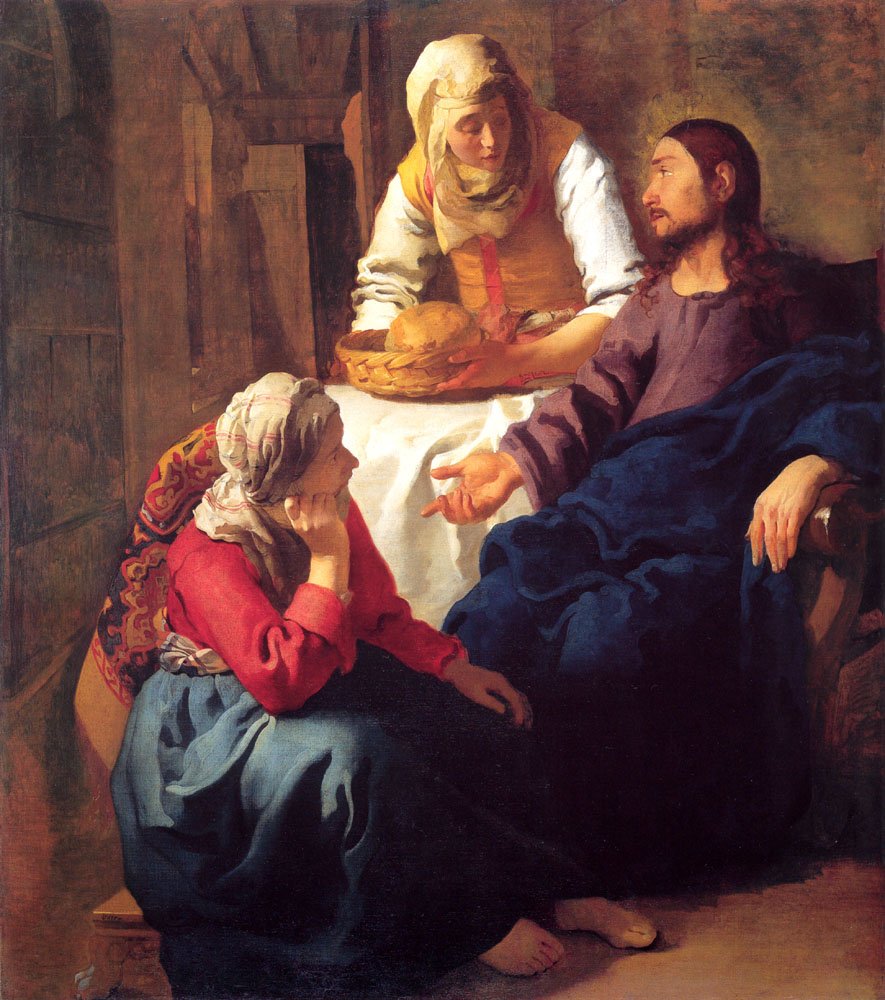Category: Women in the Church
-

Sister Beck and Daughters in My Kingdom
Having spent the past eight months in Tunisia, where our tiny L.D.S. group had very little formal structure, I had almost forgotten what it was like to go to a Church meeting without husband and children in tow. Attending the General Relief Society Meeting with a few friends was like a welcome home. I had…
-
LDS Men Aren’t Incredible
Wheat & Tares ran a fun post earlier this week titled LDS Men Are Incredible … although the URL string shows that the original draft title of the post was “Why Men Suck.” That kind of marks off the two ends of the spectrum, doesn’t it? That’s a nice lead-in for the question: What remarks…
-

In Praise of Heavenly Mother
I had a rather formative and utterly unique experience in Elders Quorum a few years ago. I taught the Mother’s Day lesson and at the end, after bearing my testimony, not one soul said “Amen.”
-
Do Titles Matter?
There is a long-standing tradition in the church to use honorific titles identifying priesthood positions for men at just about every level beginning when they become missionaries. Elder, Bishop, President. Women — even those who hold similarly named positions — are generally referred to as simply “sister.” In my 45 years in the church, I…
-
True Adventures in Turning the Other Cheek, Pt. Two
For the next several weeks, I attended church when I could. Participation often included lowering my eyes when the bishop or his first counselor walked by and gave me stern “We’re watching you” stares. In some ways the whole business interested me so I wasn’t suffering as much as some might suppose. But given the…
-
Sister Missionaries and Opposite-Gender Attraction
A wonderful woman who served as my Education Counselor a number of years ago served a mission for the church around the time she was 19. She fell in the fabulous loophole. Her father was a mission president, so she was allowed to serve while he served, even though she was “underage.” But George Durrant…
-
Hitchens on the conundrum of female religiosity
From his book review of Elizabeth Edwards’ new memoir, in this month’s Atlantic:
-
“Don’t hate me because I’m beautiful”: Random thoughts about Elder Callister’s Ensign article
This month’s Ensign contains a talk by Elder Douglas L Callister of the Seventy (a slightly edited reprint of a prior talk, actually) titled, “Our Refined Heavenly Home.” Some thoughts on reading over the talk:
-
Laura Rees Merrill: Replacing Fear with Peace
Laura Liona Rees was born in Brigham City, Utah, in 1876, to LDS parents (her father had emigrated as a convert from England; her mother was born at Council Bluffs). With only an eighth grade, district school education, she studied for and passed the test to be licensed as a grade school teacher. Then she…
-
A Child’s-Eye View of the Mormon Silk Experiment
Utah’s 19th century silk industry was one of those projects encouraged by Brigham Young to stimulate home production and reduce Mormon dependence on a hostile world. Period literature is heavy on sermons advocating sericulture, treatises on raising worms and the mulberry trees they fed on, and praise for the quantities and artistry of finished articles.…
-
Summer Seminar update
For those interested in the BYU summer seminar, I’ve revised the post, adding the titles of and abstracts for the papers.
-
From Russia With Love- Updated
There is a certain sort of person that is just so self-absorbed and generally unaware that it just doesn’t feel wrong to gossip about them, they’d just enjoy the extra attention. In my childhood ward it was Brother L.- in that ward people traded gossip about Brother L. like baseball cards. In fact it feels…
-
Venus Robinson Rossiter: Learning to Serve
Venus Rossiter, serving in Tahiti with her husband, Mission President Ernest C. Rossiter, wrote to the Relief Society General Board early in 1919 with her report for 1918.
-
Charlotte Owens Sackett: Teaching the Sisters to Sing
Lottie Owens was born in 1877 in Willard, Box Elder County, Utah. Her mother’s family were early Church members in Nauvoo; her father had emigrated to Utah as a convert from Wales.
-
Sarah Day Hall: Southern Mother in Israel
American Southerners have been joining the Church since the 1830s. The Southern States Mission became the most successful mission field in the Church in the last generation of the 1800s. During those years when southern LDS meeting halls were burned and elders and even members were murdered, many thousands of Southerners responded to the gospel.…
-
Geertruida Lodder Zippro: The Extra Mile
Much of the attention of the Relief Society Conference of October, 1945, was devoted to efforts to assist surviving members of the Church in the former war zones of Europe. Contact had been reestablished with some of the European branches, and reports of their experiences and especially of their needs were read to the sisters…
-
Christina Olsen Rockwell: Visiting Teacher
Christina Olsen was a Norwegian convert to the Church who emigrated to Zion before the arrival of the railroad. She was in her early 30s when she married the legendary Orrin Porter Rockwell, a man more than 20 years older than she was. Christina began her short married life by dividing her time between an…
-
Frances Swan Clark: A Kindness Remembered
Many of Utah’s early pioneers did not remain long in the Valley. In defiance of counsel, some rushed to the California gold fields. A few went to California as missionaries, and the two apostles who founded a ranching colony in San Bernardino found no shortage of volunteers to accompany them there.
-
Catherine Garber Laine: The Role of Her Lifetime
This story and the other women’s stories to follow were written for my ward’s Relief Society newsletter, as a formal calling for which I was set apart. The assignment was to write about a faith-promoting incident involving a woman; I added the detail “… whom no one has ever heard about.”
-
Mormon Feminists: A Divided Allegiance?
I originally began this post as a primer on feminism–a post on feminist ideological inconsistences and boundaries, and what the term “feminism” means–but the discussion following my previous T&S post on feminism and the comments on this post on FMH have got me thinking about the issue of allegiances and how that seems to be…
-
Healing the Breach between Feminists and Non-Feminists
One of the hardest things for me to deal with when it comes to feminism and the church is not directly related to any of the hot button feminist issues (i.e. not having the Priesthood, worrying about polygamy, etc). Instead, I have a tendency to get upset about the tension-filled relationship between feminists and non-feminists*…
-
Motherhood and Priesthood–Take 57!
I think that motherhood and priesthood are parallel; I know that many of you don’t. And one argument against my position that I see frequently is that you need the cooperation of the opposite sex (not to mention the blessing of fertility) to be a mother but not to be a priesthood holder. I’ve never…
-
Mark 14:3-9: The Anointing at Bethany as Markan Christology
This [very, very, very long] post is, basically, my masters thesis. I’ve had a few requests for it, so I thought I’d post it.
-
Authority on Her Head
When Paul says that women should cover their heads, is he subjugating them or liberating them?
-
In the -Hoods: Are Motherhood and Priesthood Equivalent?
Julie: This dialogue is the outgrowth of a few comments at one of those other blogs that Rosalynde suggested might make an interesting discussion.
-
An Open Letter to the Graphics Director of the Ensign
The pictures accompanying this month’s cover story entitled “Strengthening Future Mothers” make my heart hurt.
-
Book Review: Back to the Well: Women’s Encounters with Jesus in the Gospels
This statement from The Blog of Happiest Fun got a lot of links from other female bloggernaclites: I would like to spend more time discussing the lives of strong women in the scriptures. Women like Hannah, Deborah, Jael, or Anna the prophetess. There are so many women that I find interesting, and I don’t hear…
